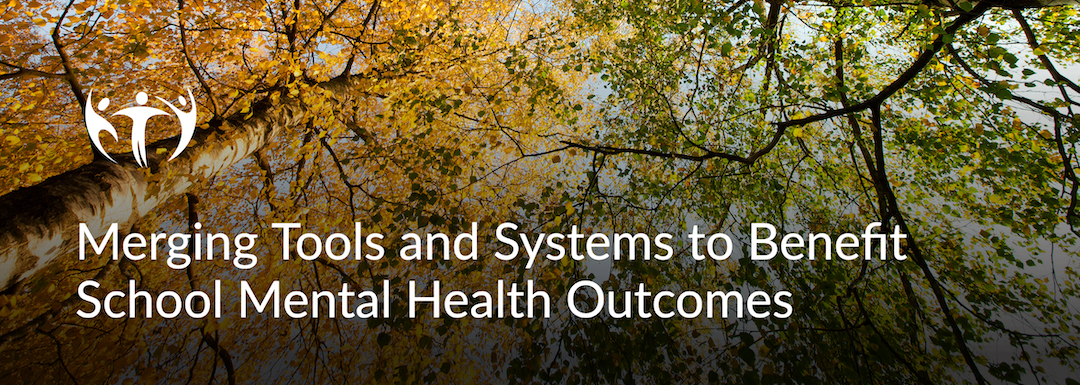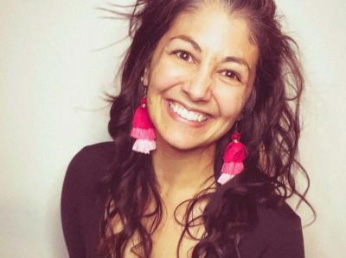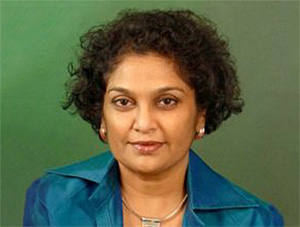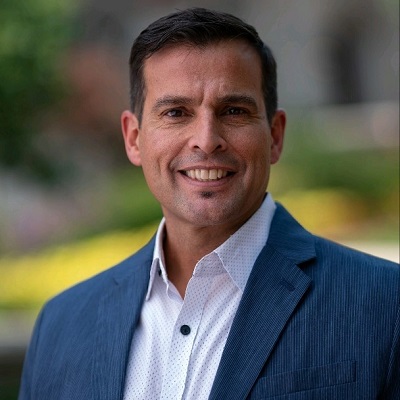Home > Fostering our Health Equity Literacy: Exploring the CLAS Standards as a Blueprint for Education, Healthcare, and School Mental Health Systems Collaboration

Session 1: November 29, 2022
An Introduction: How the National Culturally and Linguistically Appropriate Services Standards (CLAS) Can Elevate Our School Mental Health Equity Commitments
Session 2: December 6, 2022
A Deeper Dive into the CLAS Standards: Mapping Health Equity Literacy onto Our Education and School Mental Health Systems
Session 3: December 13, 2022
Implementation and Sustainability: A CLAS Standards Learning Lab
All sessions meet: 3:30 - 5:00pm PT
How might educators and healthcare professionals work together to impact the ongoing school mental health crisis using a systems-aligned approach?
How might educators establish mutually beneficial partnerships with community healthcare providers and systems?
How might interweaving the worlds of health, public health, and education improve our ability to create equitable school mental health services and systems?
Come explore these questions and learn how using shared cultural and linguistic standards to integrate distinctly different systems can create more cohesive support networks!
Join the Pacific Southwest MHTTC for a three-part series aimed to increase school or systems leaders’ health equity literacy. In this series, we explore the National Culturally and Linguistically Appropriate Services (CLAS) Standards, a set of 15 actions steps intended to advance health equity, improve quality, and help eliminate health care disparities. The CLAS Standards were originally developed as a tool for public health, not school mental health; this series seeks to benefit school mental health outcomes by merging tools and systems.
Together, we will examine how the CLAS Standards can help foster cultural and linguistic appropriateness within the health care delivery system AND enhance your school mental health efforts.
By attending this three-part learning series, healthcare, education, and school mental health professionals will find a blueprint for collaborations that enable the type of care that truly meets community members’ needs.
Note:
This series is offered to school and mental health providers in the Pacific Southwest (Arizona, California, Hawaii, Nevada, and U.S. Pacific Islands of American Samoa, Guam, Marshall Islands, Northern Mariana Islands, Federated States of Micronesia, and Palau). We are also opening this series to other providers outside of our region.
As a result of participating in this training series, participants will be able to:
What are CLAS standards and why should we adapt them to school mental health contexts?
In our first session together, we will establish an understanding of how we can integrate CLAS into our school mental health programs to maximize our commitment to health equity. The CLAS Standards encompass a primary standard (“to provide effective, equitable, understandable, and respectful quality care and services that are responsive to diverse cultural health beliefs and practices, preferred languages, health literacy, and other communication needs”) and fourteen other standards categorized into three themes: 1) Governance, Leadership, and Workforce; 2) Communication and Language Assistance; and 3) Engagement, Continuous Improvement, and Accountability.
These standards provide broad goals for ensuring cultural and linguistic appropriateness within the health care delivery system. Rarely are they translated from public health systems into school mental health and education contexts...until now! Join us as we explore how culture and language influence the delivery of mental health services in school settings and communities.
What Does the Adaptation of CLAS Standards to School Mental Health Systems Look Like?
The 14 standards that are listed after the primary CLAS standard are classified into three themes: Governance and Leadership, Communication and Language Assistance, and Engagement, Continuous Improvement and Accountability. In Session 2, we go deeper into the different standards, identifying elements that are essential to adapting these standards and exploring how they might be implemented in different systems settings. For example, how do you identify champions of the standards on the ground? How do you elicit feedback and adapt the standards to your context in a collective, collaborative way?
Please note: We strongly recommend that those who wish to participate in Session 2 also attend Session 1. Session 1 will establish background that is necessary for Session 2.
Our third session of the series is an interactive workshop led by our facilitators. In it, you will identify the steps for designing an adaptation process to meet the needs of your school system’s cultural context. Join us to creatively translate the standards into useful guidelines for your leadership, collaborations, cross-system partnerships, and more.
Please note: We kindly request that participants attend at least one of the first two sessions to be able to come to the third session.

Yesmina Luchsinger, MS (she/hers) is an educator, advocate, and mental health professional. Prior to joining CARS as the NTTAC School Based Services Co-Lead and the Pacific Southwest MHTTC Training Specialist, she served as the Director of School Safety & Social Wellness at the Arizona Department of Education during the expansion of their nationally recognized School Safety Program to include counselors and social workers for the first time. Yesmina’s team also led the development and release of Arizona’s Model School Safety Plan, coordinated the implementation of a statewide suicide prevention initiative, and participated in developing the Arizona Model Mental Health Referral Policy for schools. She was recognized by the National Center for School Mental Health in 2019 as the Youth and Family Partner of the Year for her work to elevate and empower the leadership of the communities she serves. An Arab-American and daughter of an immigrant, Yesmina is currently working to improve collaboration within care networks such as health, education, and child welfare. In her free time, she teaches yoga, paints, and sends snail mail to her friends.

Dr. Suganya Sockalingam is a Founding Partner at Change Matrix, LLC, which supports agencies in addressing diversity, cultural competence, and cross-cultural communication as well as leadership, collaboration, and conflict management. Dr. Sockalingam is a knowledge transfer specialist for the Pacific Southwest MHTTC. Dr. Sockalingam focuses on supporting individuals, organizations, and systems to motivate, manage, and measure system change. Currently, she serves as a training and technical assistance provider for several national technical assistance centers, and for other federal, national, state, territorial, and community agencies. She earned her doctorate at Washington State University and has worked in many capacities in public and behavioral health, both nationally and internationally, for over 25 years.

Scott van Loo joined Change Matrix full time as a Change Consultant after leaving his role as Director of the Learning Effectiveness Program (LEP) at the University of Denver. Scott is the founder and president of Cedar Tree Consulting, an organization that provides transformational learning experiences focused on equity, change and leadership. He has almost 30 years of experience in pk-20 education, including elementary and high school teaching and central and building-level administration, with a background in Special Education, English Language Learners, Homeless Education, Equity and Diversity training, and parent programs. Scott is the former Director of the César Chavez Cultural Center at the University of Northern Colorado where he helped recruit, retain and support hundreds of Latine students and helped create several endowed student scholarships. He has been a facilitator with the National Coalition for Equity in Education, Respecting Ethnic and Cultural Heritage Center, the Anti-Defamation League and the Generating Expectations for Student Achievement program. As the grandson of Lebanese immigrants and Dutch Americans, Scott is passionate about creating safe spaces for equitable dialogue and transformational experiences that promote and challenge individuals’ thinking and professional growth. He has facilitated equity work with colleges, universities, school districts and corporations across the United States. Scott has volunteered with the U.S. Armed Forces Entertainment Unit, traveling overseas for three tours and entertaining hundreds of service women and men; he currently plays in a Denver-based salsa band. He has a B.A. in Interdisciplinary Studies: Music and Business, an M.A. in Special Education, master’s level courses in Educational Leadership including a principal’s license, and Doctoral work in Organizational Development. Scott has a wonderful partner, Candice; they live just outside of Denver, Colorado and have four adult children and a dog.
Will Continuing Education credit be offered for this series? No
The National Culturally & Linguistically Appropriate Services and Standards Homepage | United States Department of Health and Human Services, Think Cultural Health
This website features information, continuing education opportunities, resources, and more for health and health care professionals to learn about culturally and linguistically appropriate services, or CLAS. Launched in 2004, Think Cultural Health is sponsored by the Office of Minority Health.
A Practical Guide to Implementing the National CLAS Standards: For Racial, Ethnic, & Linguistic Minorities, People with Disabilities & Gender Minorities | National Committee for Quality Assurance
The purpose of this toolkit is to enable organizations to implement the National CLAS Standards and improve health equity. It is intended for organizations that have already decided to pursue CLAS, to improve equity and eliminate health care disparities; it is not a decision guide about whether to implement National CLAS Standards.
Literature Review of the National CLAS Standards: Policy and Practical Implications in Reducing Health Disparities | Journal of Racial and Ethnic Health Disparities
This literature review examines organizational challenges, applicability, and policy implications related to the National CLAS Standards. 55 research articles are included, authors examine researched released during 2014-2015